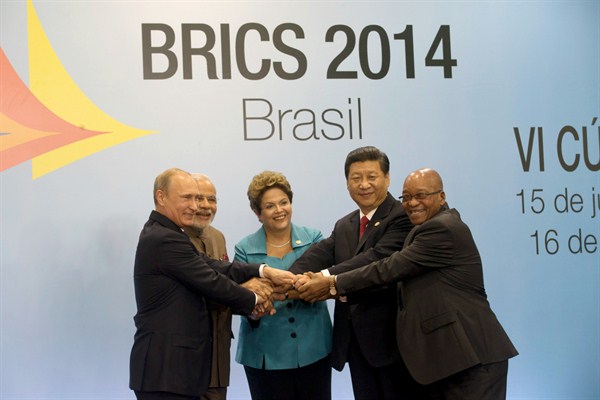The list of applicants for the job of “international financial crisis manager” just got a bit longer. After two years of negotiations, Brazil, Russia, India, China and South Africa—known collectively as the BRICS—have unveiled a new international financial institution. The centerpiece of the aptly named New Development Bank is a $50 billion pool of resources set aside to fund infrastructure and other development projects in the BRICS countries. However, the group also announced the creation of the Contingent Reserve Arrangement (CRA), a $100 billion fund designed to provide short-term liquidity support to members of the group, similar to the Western-dominated International Monetary Fund (IMF). Despite suggestions that the CRA is just another sign that the BRICS and the West are headed for confrontation, there are reasons to believe the new institution might leave all sides better off.
In practice, the CRA is not really a pooling of the BRICS resources. Rather, each of the parties to the agreement has promised to make a portion of its own foreign exchange reserves available to the other members should one of them need assistance. Thus, there is no upfront commitment, only a pledge that varies by member. China has committed $41 billion, Brazil, Russia and India $18 billion each and South Africa $5 billion.
In the broadest sense, all of the BRICS are winners from the new agreement. It sends a signal to the West that the group can do more than simply hold summits; it can also reaching meaningful agreements. However, from a financial perspective, it is hard to see how the CRA really benefits China, which is making the largest contribution to the fund and yet can only draw up to half of its commitment. Additionally, of all the BRICS, China is the least likely to need an arrangement like this in the first place, as Beijing has $4 trillion in its own foreign exchange reserves, more than three times the amount of the other BRICS combined.

